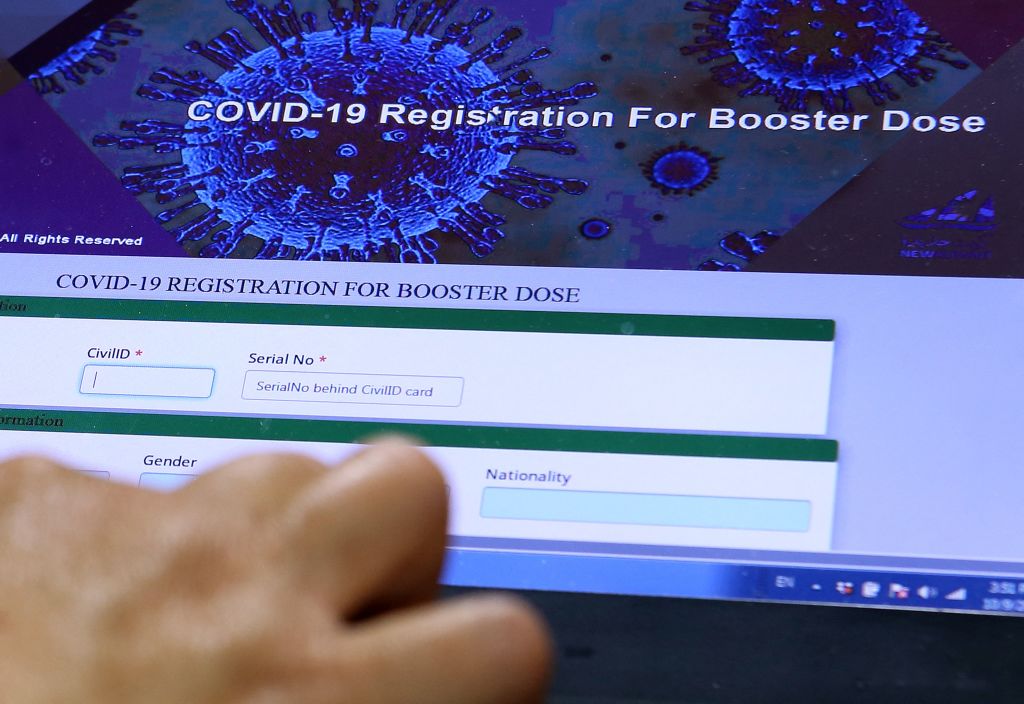Should you get a COVID booster shot as soon as you are eligible?


A free daily email with the biggest news stories of the day – and the best features from TheWeek.com
You are now subscribed
Your newsletter sign-up was successful
The Food and Drug Administration (FDA) and Centers for Disease Control and Prevention (CDC) are expected to open COVID-19 booster shot eligibility this week to all adults who got their Pfizer and Moderna second doses at least six months earlier. (Everyone vaccinated with Johnson & Johnson's vaccine should get a booster after two months, the CDC advises.) Several states and large cities have already cleared all adults to get booster shots.
If you are under 65, relatively healthy, and don't have other risk factors that have made you eligible to get a booster shot since September, should you schedule your third dose as soon as the FDA and CDC give you the green light?
The short consensus answer is yes, you should get a booster shot as soon as you are eligible.
The Week
Escape your echo chamber. Get the facts behind the news, plus analysis from multiple perspectives.

Sign up for The Week's Free Newsletters
From our morning news briefing to a weekly Good News Newsletter, get the best of The Week delivered directly to your inbox.
From our morning news briefing to a weekly Good News Newsletter, get the best of The Week delivered directly to your inbox.
If you are fully vaccinated, "the shot will, well, give you a boost," Caroline Mimbs Nyce writes at The Atlantic. "You're likely already well protected from severe disease, hospitalization, and death thanks to your first course," but "the early science suggests that extra doses help your body produce additional antibodies, perhaps lowering your risk of infection."
The Biden administration and CDC, especially, "still cling to this idea that the first and only goal should be to prevent hospitalizations," Dr. Peter Hotez, dean of the National School of Tropical Medicine at Baylor College of Medicine in Houston, told Politico's Renuka Rayasam on Wednesday. It's better to avoid getting COVID at all, especially since the sparse evidence suggests breakthrough cases can lead to long COVID, he adds, and "who wants to get that?"
"There is some preliminary evidence that the levels of antibodies after a booster are higher than after a second dose of an mRNA vaccine," Sumathi Reddy writes at The Wall Street Journal. "But higher antibody levels would still wane over time." Timing-wise, you can wait until two to three weeks before a big event, like Christmas or a wedding, to get the third shot, she adds, but "predicting the course of the virus is tough. A more contagious variant could surface and lead to more risk while you're waiting."
Spacing vaccine doses six months apart is the norm, Hotez said, and three doses is the magic number for common childhood vaccines. "I am of the opinion that we won't need another booster next year," or for several years, he told Politico. "But at this point, that is still just an opinion."
A free daily email with the biggest news stories of the day – and the best features from TheWeek.com
Peter has worked as a news and culture writer and editor at The Week since the site's launch in 2008. He covers politics, world affairs, religion and cultural currents. His journalism career began as a copy editor at a financial newswire and has included editorial positions at The New York Times Magazine, Facts on File, and Oregon State University.
-
 The Olympic timekeepers keeping the Games on track
The Olympic timekeepers keeping the Games on trackUnder the Radar Swiss watchmaking giant Omega has been at the finish line of every Olympic Games for nearly 100 years
-
 Will increasing tensions with Iran boil over into war?
Will increasing tensions with Iran boil over into war?Today’s Big Question President Donald Trump has recently been threatening the country
-
 Corruption: The spy sheikh and the president
Corruption: The spy sheikh and the presidentFeature Trump is at the center of another scandal
-
 Trump HHS slashes advised child vaccinations
Trump HHS slashes advised child vaccinationsSpeed Read In a widely condemned move, the CDC will now recommend that children get vaccinated against 11 communicable diseases, not 17
-
 A fentanyl vaccine may be on the horizon
A fentanyl vaccine may be on the horizonUnder the radar Taking a serious jab at the opioid epidemic
-
 Health: Will Kennedy dismantle U.S. immunization policy?
Health: Will Kennedy dismantle U.S. immunization policy?Feature ‘America’s vaccine playbook is being rewritten by people who don’t believe in them’
-
 How dangerous is the ‘K’ strain super-flu?
How dangerous is the ‘K’ strain super-flu?The Explainer Surge in cases of new variant H3N2 flu in UK and around the world
-
 Vaccine critic quietly named CDC’s No. 2 official
Vaccine critic quietly named CDC’s No. 2 officialSpeed Read Dr. Ralph Abraham joins another prominent vaccine critic, HHS Secretary Robert F. Kennedy Jr.
-
 This flu season could be worse than usual
This flu season could be worse than usualIn the spotlight A new subvariant is infecting several countries
-
 FDA OKs generic abortion pill, riling the right
FDA OKs generic abortion pill, riling the rightSpeed Read The drug in question is a generic version of mifepristone, used to carry out two-thirds of US abortions
-
 Why are autism rates increasing?
Why are autism rates increasing?The Explainer Medical experts condemn Trump administration’s claim that paracetamol during pregnancy is linked to rising rates of neurodevelopmental disorder in US and UK
